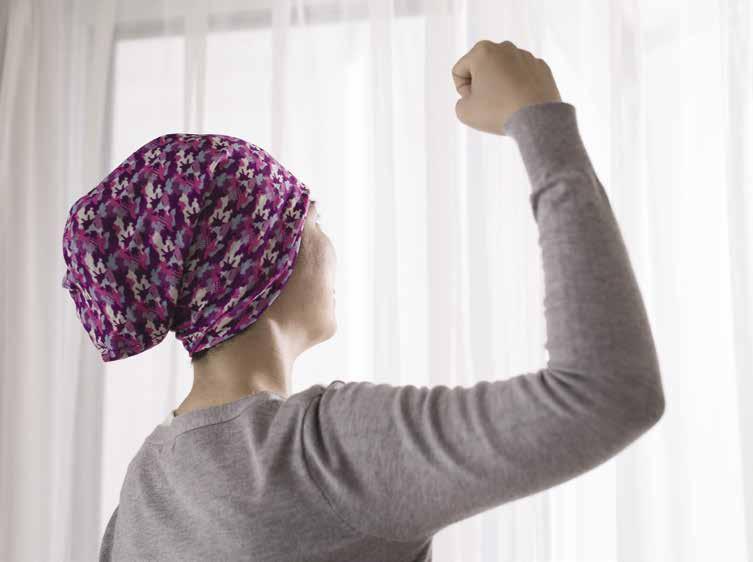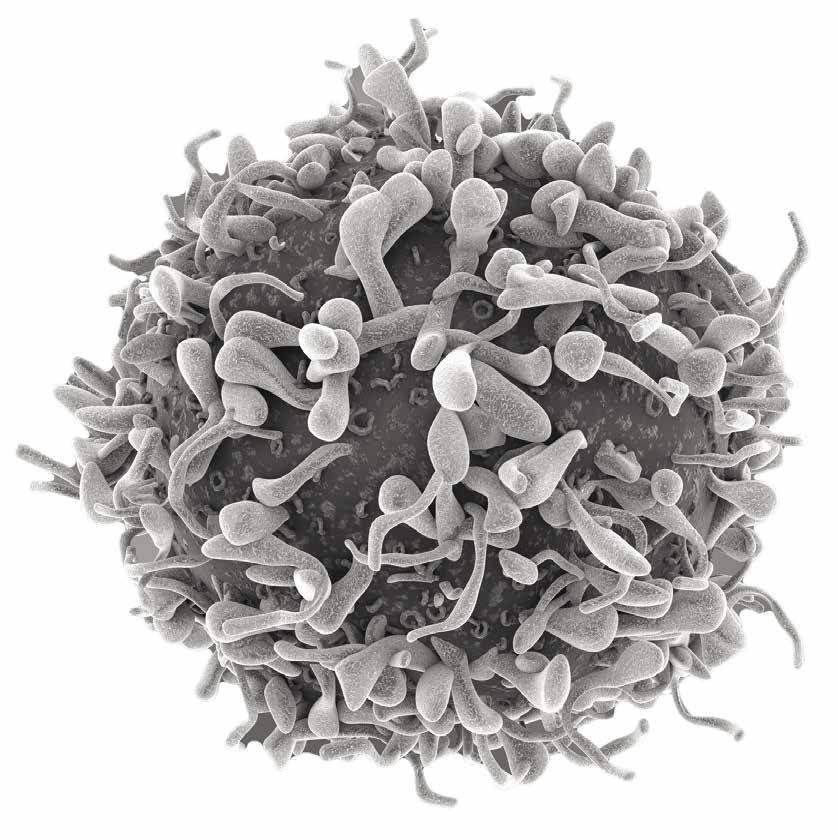
4 minute read
Pennington Biomedical Launches Cancer Survivorship Program
Justin Brown was only 14 when his father passed away from colon cancer and his future career path became clear to him.
Advertisement
“My mission is motivated by the need to prevent children from having to watch their parents melt away from cancer,” he said.
Although a sizeable percentage of patients with colon cancer initially beat the cancer, 30 to 50 percent of those patients relapse – and 90 percent of those who relapse die within two years.
This is exactly what happened to Justin’s father. At just 46 years old, his father was diagnosed with early-stage colon cancer. Usually, patients under age 50 are not screened; his father was young to receive the devastating prognosis. He was cancer-free after surgery, but at 48, he relapsed.
Longtime Pennington Biomedical Research Foundation board member Art Favre did not need convincing that there was a need to study the metabolism of cancer. Through his generous investment, the Cancer Metabolism Research Program at Pennington Biomedical was born.
“My gift was all about the utilization of these researchers’ God-given talents. They are continually opening doors to the secrets of the complexities of life. This step-by-step process brings us closer every day to the ultimate goal of a disease-free society,” said Mr. Favre.
Dr. Brown was a Research Fellow at the Dana-Farber Cancer Institute in Boston and was recruited to Pennington Biomedical to lead the newly created Cancer Metabolism Research Program made possible through Mr. Favre’s generous philanthropy. Dr. Brown’s research has a particular focus on cancer survivorship and prevention through nutrition, weight control, physical activity and chemopreventive strategies. Evidence suggests that patients who are physically active after their first cancer diagnosis are less likely to relapse. Dr. Brown wants to understand how and why losing weight, managing weight, and managing diabetes can prevent a relapse. His research builds on Pennington Biomedical’s strengths and further expands the Center’s collaborative relationships with regional cancer centers and health professionals.
During a chance encounter between Dr. Brown and local oncologist Dr. Gerald Miletello, Dr. Brown described his vision and efforts to build the Cancer Survivorship Rehabilitation Center which served as the first step to creating a Cancer Metabolism Research Program. Dr. Miletello casually asked how much funding the program would require to launch. Dr. Brown responded

Justin C. Brown, PhD
Director, Cancer Metabolism Program Assistant Professor Cancer Energetics
with an amount, never imagining it was more than a general question and the two parted ways.
The next day, Dr. Brown received a phone call from Dr. Miletello to let him know he and his wife, Dr. Melinda Prevost, were donating all the funds required to launch the Cancer Survivorship Program and set it on a path to success.
“We know that small steps towards healthy lifelong habits can make a big difference in how cancer survivors feel, function, and survive. Thanks to Dr. Miletello’s generosity, cancer survivors across Baton Rouge can now enroll in a 10-week program to determine if a lifestyle program that includes exercise, diet, and weight management helps cancer survivors improve overall wellness and prevents cancer recurrence,” said Dr. Brown.
“When cancer patients finish treatment, they are typically just left out there to figure out for themselves how to get back to living,” Dr. Miletello said. “No one comes out of treatment unscathed. Many of my patients tell me it takes two years to get back on their feet, and that they go to bed thinking about their cancer and wake up thinking about their cancer.”
“I really like that this program is for every cancer patient, regardless of age or type of cancer,” he added. “Cancer is not a death sentence. There is a mental component to the battle against cancer. Your attitude and emotions come into play. You can will yourself to live and you can will yourself to die. I believe this program is going to make a big difference in how quickly patients can recover and begin to feel good again. I think we are going to show a better, quicker recovery, decreasing a two-year period to just six months.”
Dr. Miletello said he anticipates that this program will have positive results that can be shared and duplicated in clinics throughout the country.
Reflecting on his work, Dr. Brown said, “My father left too early, but at the end of the day he is the motivation behind the work that I do here every day, finding ways to help people live longer with a higher quality of life. I am grateful for all those who have generously invested in our vision of a world where cancer survivors thrive.” •







